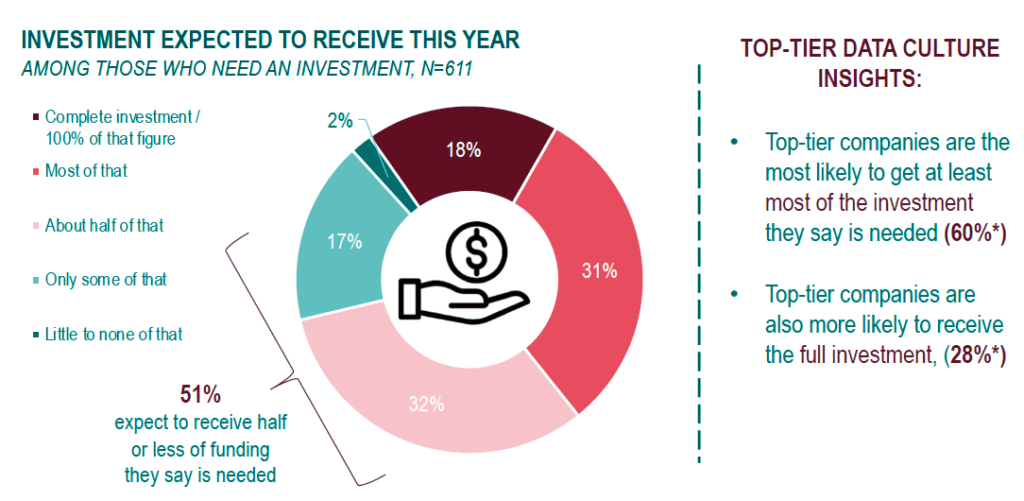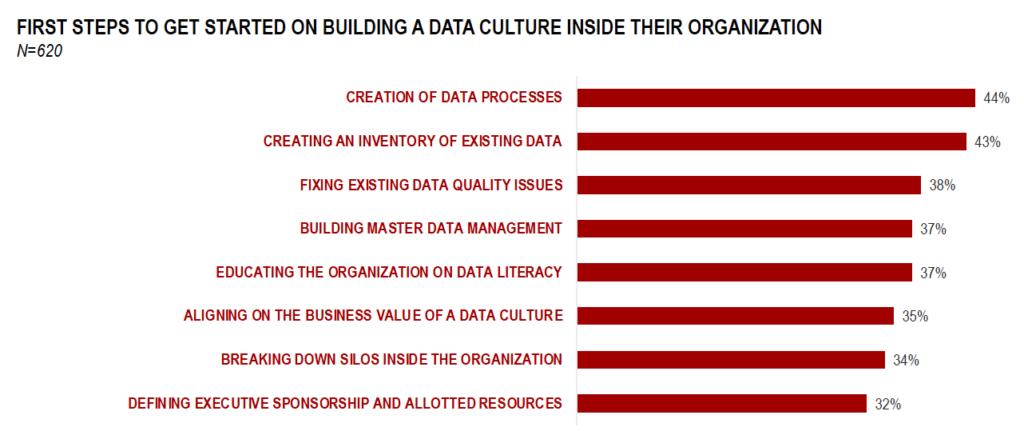The Q1 2022 Alation State of Data Culture Report reveals that only 18% of data leaders expect to receive the full amount of funding they say is necessary to get or stay ahead of the competition for data and analytics, even 98% cite needing it.

Source: Q1 2022 Alation State of Data Culture Report
The report noted that data leaders feel the pressure to remain competitive. It has repeatedly shown a direct correlation between a strong data culture and an organisation’s ability to achieve or exceed revenue goals.
More than 600 data leaders globally participated in this research study and the latest report found that organisations with a top-tier data culture remain the most likely to meet or exceed their revenue goals, 90% did so over the past 12 months.
Yet, 66% of data leaders cite company leadership as an obstacle to getting the funding they need, including 42% who say the C-suite doesn’t follow through on promised investment in programs that drive data culture.
In addition, only 29% of data leaders are very confident that their CEO understands the link between investment in data and analytics and staying ahead of the competition. This points to a strategy gap where C-level executives pay lip service to the benefits of investing in data and analytics, but don’t make it a priority, leaving organisations vulnerable to disruption.

“As awareness about data culture grows, executives and their organisations are learning how hard it is to build a solid foundation for it. Early in the life cycle of this research many either thought they were done or barely acknowledged the problem, whereas today, executives know they have a bigger hill to climb. There’s a lack of funding dedicated to creating a data culture that drives revenue and operational efficiency,” said Satyen Sangani, co-founder and CEO, Alation.
He added that if these organisations fail to recognise the power of data-driven decision making, and don’t fund data and analytics initiatives properly, at best they’ll introduce significant risk to their organisations; at worst, be disrupted by competitors that threaten their existence.
The Data Catalog is important
Data leaders have identified several core areas for investment to improve their organisation’s data culture, with 87% of data leaders agreeing that data catalogs are very important or essential to their efforts.

Source: Q1 2022 Alation State of Data Culture Report
This is a significant increase from 68% of data leaders in Q3 2021, just 6 months earlier. Respondents also agree the first steps to building a data culture include creating data processes (44%), creating an inventory of existing data (43%), and fixing existing data quality issues (38%).




